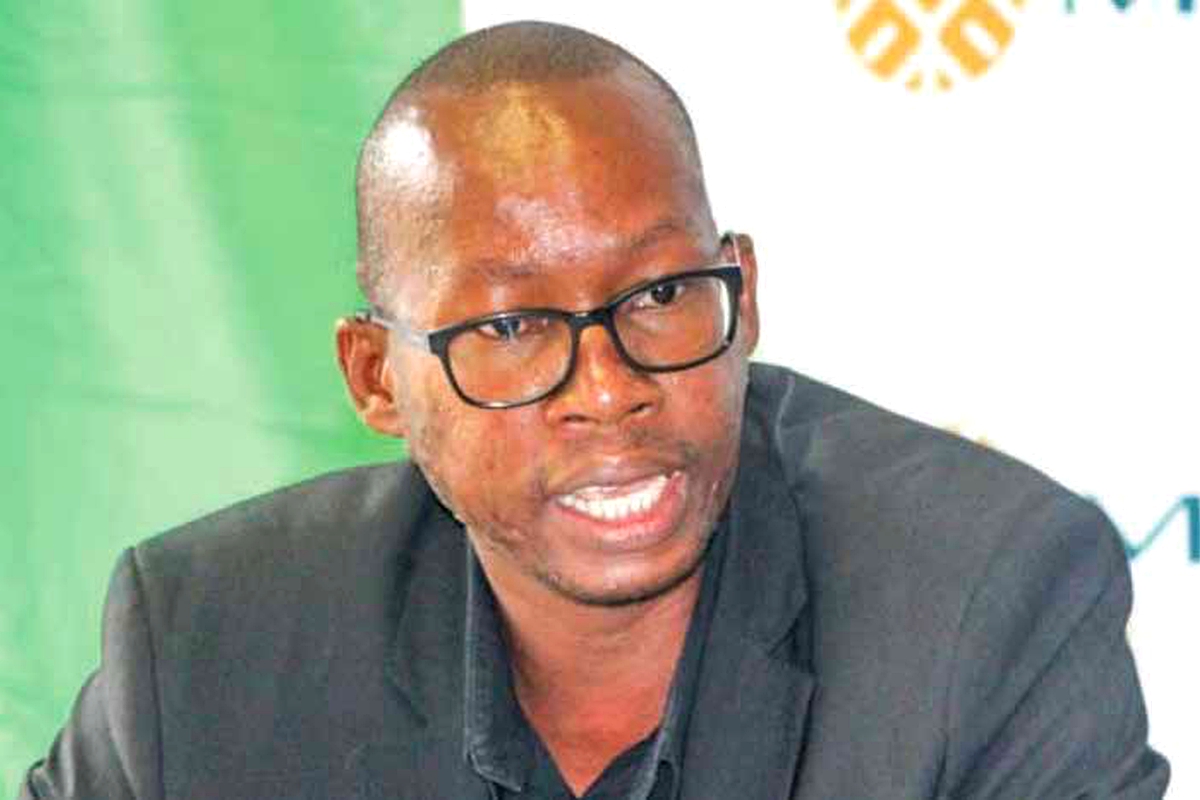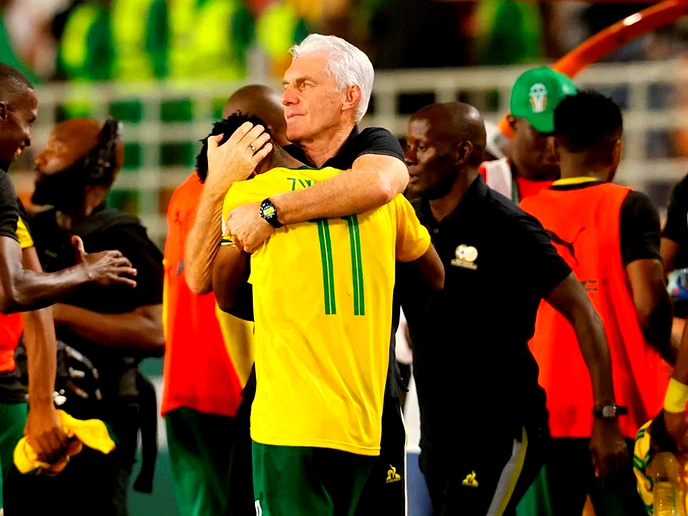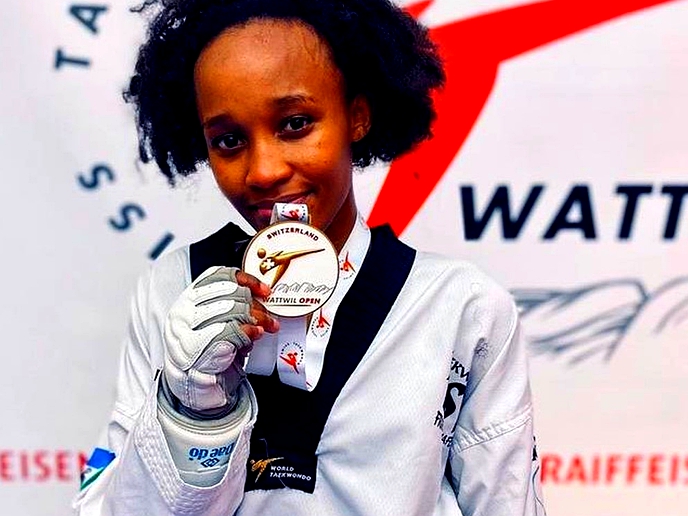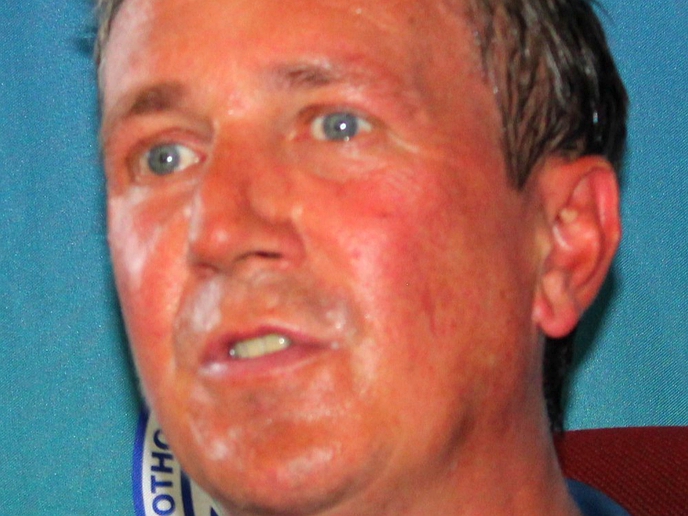It is quite rare in the Mountain Kingdom to have a mere 35-year-old holding the position of chief executive officer in a big organisation like the Lesotho Sports and Recreation Commission (LSRC). But that is the route the administration of the sports mother body took in appointing Teboho Malataliana (TM) as its acting CEO following the departure of Sechaba Mokhameleli late in 2019. In this heart-to-heart interview with the Metro correspondent Mikia Kalati, Malataliana opens up about his journey working for the LSRC.
sports
July 2, 2020
STAFF REPORTER
8 min read
Sports leader with a big heart

Teboho Malataliana
Metro: Ntate Malataliana, thank you for taking time from your busy schedule to talk to us. Please briefly tell us who Teboho Malataliana is.
TM: I was born in 1985 in the Mafeteng district. I attended primary school at the Maseru LEC before I proceeded to Khubetsoana High School where I did my high school education. I hold a Bachelor of Commerce Degree from the National University of Lesotho (NUL).
I used to play both cricket and volleyball. I am married man with two kids. I am currently the acting CEO of LSRC. I am also a board member of both the Maseru 2020 Games Local Organizing Committee and the Maseru 2022 African Youth Games Local Organizing Committee. I also serve in several sports working committees.
Metro: You were handed the responsibility to lead the LSRC as the acting CEO following the departure of Mr Mokhameleli in 2019. What can you tell us about leading one of the biggest sports organisations in Lesotho? TM: The job looks easy from afar – drive the strategic plan of the organisation. And how do you do that? You need to coordinate all stakeholders to go in the same direction. You need interpersonal skills, it’s not about you anymore… now the goal is bigger than you! Sometimes it is stressful. There are not enough resources.
What good is an anchor if he can’t get the ball? That immediately tells one that it is not business as usual. Change has to be done. And that’s where team work comes in. you need to give support as well as to receive it from both the bosses and the colleagues. The biggest challenge is winning the trust of sponsors to invest in sport.
Metro: According to our research, you have also made history by becoming the youngest CEO of LSRC? How do you feel about that?
TM: We have had different people in that office all in an endeavor to push the mandate of the LSRC. And I must remind you of the popular saying that age is nothing but a number… hahaha. Mr. Phelane Phomane has acted in this office some years back and he was also relatively young at the time.
Metro: It is very rare for people your age to be given such huge responsibilities. Would you encourage more institutions to follow suit?
TM: Absolutely! There is much energy at a certain age range to do work and there is more room for action with less fear of risk that is how one gets experience – by doing. Don’t get me wrong, I’m not saying old people are useless at the helm of any organisation.
What are important are people with good experience and the energy to do the job. If that could be practiced in government ministries, hopefully we would rapidly see change in service delivery. But most private companies are already doing that… and prospering.
Metro: Would you accept the position if your bosses were to offer you the job on a fulltime basis?
TM: There is much work to be done in that office. LSRC was enacted by Act of Parliament – Lesotho Sport and Recreation Act 2002, and its annual subvention is rapidly declining. The LSRC has to be financially independent. That is the goal that we are working towards achieving and I will support whoever is at the helm to achieve it.
As much as the LSRC CEO is appointed by the Minister through the recommendation of the Commission, good labour practices must be followed. The vacant post must be open to any Mosotho national who is competent and qualified to do the job.
Metro: How did you end up working for LSRC?
TM: I was temporarily employed by the Lesotho Revenue Authority (LRA) when out of the blue I received a phone call from LSRC asking me to attend a meeting at 5pm. When I arrived at the meeting later that day, I met three gentlemen and on the table was a copy of my CV. Little did I know that I was attending an interview for yet another temporary position. The LSRC needed someone to implement the Tax Rebate mechanism so they had requested three CVs from LRA for the job.
I got the job immediately thereafter though it was made clear to me that it was only temporarily. The contract is renewed time and again, giving me the opportunity to better improve performance and contribute towards achieving the goals of the organisation. Then there was a vacant position, which was advertised, I applied, got the permanent job and now here I am eight years later.
Metro: What has the journey been like working in the sports industry?
TM: The sports industry has given me an opportunity for growth and I’m learning every day. Everyone wants to be part of the winning team and being here watching and feeling how ‘’organised’’ sport has to literally beg for everyone’s (government and sponsors) attention when it comes to funding that is needed to develop sport in this country which in essence helps Basotho to earn a living through sport, yet every December many MPs hold community games and give away price monies (once a year). Those are the real frustrations. But there are plenty of milestones to point.
Metro: Sports like other industries has been hit hard by the Corona Virus pandemic. What is the way forward and will it be easy to pick up the pieces?
TM: It will definitely not be easy to pick up the pieces. The LSRC serves 36 National Sports Associations (NSA) with many being amateur sports bodies and only a few semi-professionals. Corona Virus is not the first blow to hit both NSA and the LSRC. The past financial year has been the hardest ever! No funding was given to NSA to run programmes.
I can count only a few NSA that continued with their activities (sourcing funding from sponsors and international federations). But many have since stopped their activities. Now Corona Virus has forced everyone to stop completely. It is a threatening situation to a few NSA that have sponsors. As the corona virus infections rise in Lesotho, it means delay in re-opening competitions and competitions are the target of sponsors. We are already advocating for policy change as a strategy to ensure the survival of sports.
Metro: Lesotho is the host of the 2020 AUSC games. Should the games still take place or be postponed due to the disruptions brought by the Corona virus?
TM: Health is a priority. We need a safe and stable environment for the games to be held. We sing the same tune with member-countries that sport is a unifier of society and nations but health is more important.
If the games are to continue in December, it would mean all 10 countries would have allowed international travel to resume, all countries would have to quarantine and test teams prior to departure to Lesotho, and run several tests before the games, during the games and after the games… and all these things that must be done costs money. Who will incur the costs? Let the games be postponed. Not that when they have been postponed, costs will be minimal, but it will give each country time to prepare. If ever all the countries have equal economy and share resources, the corona virus would easily be contained and prevented, and the games would continue as planned. We need to have strategies in place to play should the corona virus be with us longer.
Enjoy our daily newsletter from today
Access exclusive newsletters, along with previews of new media releases.
Metro: Lack of sports infrastructure continues to haunt Lesotho to this day. What can the new government led by Dr Moeketsi Majoro do to improve this situation?
TM: Either Lesotho hosts regional/international games or not, we need sports facilities that meet international standards. Our teams need to practice on the same facilities as the ones they will be competing on elsewhere in the world. Get it right the first time! Any infrastructure is an investment to the country. But sports facilities are a bit sensitive in that, if they get constructed without consultations with the relevant stakeholder (end-users), they will not in any way have return on investment as they will simply not be used for sports. To build new sports infrastructure is the responsibility of the government.
Such developments need to be planned and budgeted for, and change of regime does not necessarily demand change of plans but need induction and carry on with the much needed speed and efficiency in order to achieve the already existing goals. It is true that the new government may have a different policy direction, but Sesotho se re thebe e sehelloa holim’a e ’ngoe… loosely translated to mean ‘no need to re-invent the wheel’. Lesotho is known for its high altitude and that is a better advantage to our athletes competing outside the country. Having sports facilities that meet international standards will attract more foreign teams to camp in Lesotho and thereby contributing to the economy of the country.
Metro: Lesotho has over the years struggled to make an impact competing in major international competitions such as the Olympics and Commonwealth Games. What do we need to do as a country to get better results in these competitions?
TM: We need to focus and prioritize. Have a clear plan, say in 2032 Games we need at least four gold medals from the Olympics. Is that possible? Yes it is. Invest in Podium Performance Programme (PPP). It has been proven that individual sport codes rank high in winning medals as opposed to team sports. Currently, PPP focuses on athletics, taekwondo and boxing. With proven history for the aforementioned sport codes to win medals, that is where we must invest.
We can enroll winners from AUSC Region 5 U20 Games (which are developmental games) into PPP. That raw talent then needs to be nurtured while we retain our athletes. Lesotho is a third world country and sport need to be one of the strategies government uses to eradicate poverty by remunerating not only athletes but the entire technical team that works on achieving a desired performance.
What kind of performance are we hoping to get if an athlete is a volunteer and a coach is a volunteer? Let us drive sport as a career and not as a hobby. Honestly, there is little investment in sport and that needs to change.
Tailored for you






